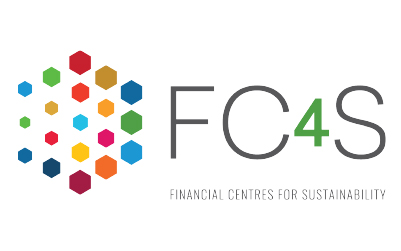
Un-convened financial centres for sustainability (FC4S) launches its 2021 Paris agreement alignment assessment programme
In 2020 the world lost nearly two million people to the COVID-19 pandemic. The health of more than 90 million people globally was affected, lifestyles dramatically changed, and humanity was forced to rethink its natural (and so long ignored) fragility and its relationship with the environment. And with the economies of most, if not all countries in the world, brought to a standstill, millions of jobs, people’s incomes, and savings were negatively affected, with governments scrambling to halt economic freefall. During this period, significant global progress that had been made in previous years in support of the UN Sustainable Development Goals (SDGs), took a massive hit.
Despite this, in 2020 the sustainable finance agenda surged. Increasing in importance throughout the last decade, and against many predictions, the global economic crisis brought on by the pandemic has only stressed the relevance of prioritizing sustainability within financial markets, to avoid or at least soften the impacts of future global threats. In fact, even though global markets were impacted by the crisis, sustainable finance has experienced an acceleration in several asset classes.
In this context, the world’s financial centres are positioned as essential cogs in the global sustainable finance mechanism. Recognising this, since 2018 the UN-convened Financial Centres for Sustainability (FC4S) has annually measured the progress of its members against the Paris Agreement. A first of its kind exercise, this annual assessment helps FC4S to assess the global development of sustainable finance across five continents. It provides members with a baseline alignment to the Paris Agreement and the SDGs, and an update on progress in different centres. It also helps identify areas where more support is required to underpin progress, and further drive progress through strategic roadmap development including on institutional foundations, enabling environments as well as key market infrastructure features.
With the assessment framework developed in partnership with PwC, a FC4S partner and co-funded by EU EIT Climate-KIC, this year’s annual report was launched during the annual Abu Dhabi Sustainable Finance Forum 20th January 2021, hosted by Abu Dhabi Global Market (ADGM).
This year’s report shows that between 2018 and 2020, the financial centres which participated in the FC4S Assessment Programme have made significant progress, regardless of their size or maturity level. Other key trends include:
- Financial centres across all continents are mobilizing their resources, connectivity, expertise and capital to align with the objectives of a sustainable financial system.
- They are working with other institutions and private actors to build high-level approaches and initiatives to make significant progress at a national level.
- The study shows that the number and the diversity of the stakeholders involved in member FC4S sustainable finance initiatives nearly doubled between 2018 and 2020.
- The share of centres reporting having implemented fiscal incentives or public-backed funds and institutions to support green and sustainable finance activities doubled between 2018 and 2020.
This year’s report revealed eight key insights on how financial centres across all continents are mobilizing their capital, resources, connectivity, and expertise to align with the objectives of a sustainable financial system: in short, delivering capital to support the low-carbon transition and the achievement of the UN SDGs.
- Thirst for data: Data quality and availability is a persistent challenge faced by two thirds of financial centre respondents. Issues regarding accessibility, reliability, incompleteness, non-comparability, as well as lack of necessary skills or analytical capabilities are currently hindering progress in mainstreaming sustainable finance globally. Yet, leading financial centres and international institutions are coordinating, innovating and pooling their resources together with private actors to remedy the situation. Engaging with local stakeholders to appeal to them with a common framework or language at the financial centre level appears to be a redeeming first step.
- Going beyond climate: As in previous years of the assessment, climate change continues to be a major focus, and for many international, regional and national, as well as private and public institutions, it remains a point of entry into sustainable activities. Even other environmental verticals are much less considered in the current sustainable finance market. Nonetheless, the UN SDGs are being gradually adopted as a global framework by mature public and private institutions and impact funds targeting social and biodiversity themes are emerging in many financial centres.
- The regulatory environment remains a critical driver: Four out of five financial centres consider that new policy initiatives can act as a “positive enabler” or even be a “major driver” of sustainable finance. Though, the exercise remains delicate between the two extremes of a lack of enforcement which encourages non-compliance, and an overregulation that deters innovation and risk-taking. Most financial centres still have room for ambitious policies and regulations to be developed, able to ease market conditions and truly drive investors to direct greater amounts of capital towards the low-carbon transition and the achievement of the SDGs.
- Commitments from authorities are key for take-off: Public authorities can play an important role in encouraging the implementation of the SDGs, addressing shared challenges and promoting the use and harmonization of existing market tools and methods. They can guarantee a level-playing field between all financial institutions, ensure sufficient monitoring, and adopt long-term strategies at the country or financial centre level and thereby further raise ambitions, while ensuring that they are translated into meaningful and concrete actions. The combination of taking binding commitments and setting long-term strategies at the country or financial centre level is necessary to transform the financial system and accelerate alignment with the SDGs.
- Despite the general move forward, sectors’ maturity levels are not yet aligned: Debt capital markets persist as the most mature sector, notably due to green bonds being well established and mainstream globally. Equities are following closely as a result of the broad development of ESG data, though diverging methodologies and frameworks between providers hamper comparability. Green and sustainable banking falls further behind and sustainable insurance solutions still have the furthest to go.
- Still a need for increasing international collaboration: A key lesson learnt from the pandemic is that for it be overcome, international collaboration and coordination are required. In other words, sustainability is not a zero-sum game, and for the financial industry shift to advance, every country’s commitment and sustained progress are needed. The FC4S Network’s continuous expansion is a perfect example of this trend. Other international partnerships have also seen their membership increased, even more so in the 2020 turmoil. The FC4S assessment analysis results reflect this global trend, with nearly half centres identifying “building connectivity” in their top three priorities.
- The professional development and education offer grows in capacity: Recognizing that a skill shortage would prevent public and private institutions alike to go beyond commitments and scale up impactful activities, FC4S developed a first-of-its-kind analysis in Europe to examine the sustainable finance skills and talent gap in 2020. The results were striking: although financial centres are reporting a growing number of sustainable finance programmes and trainings available to both students and workers, the capacity gap is still considerable and constitutes a remarkable challenge for the European (and potentially, many other global) markets.
- The global sustainable agenda endures: Despite COVID-19, 2020 saw a similar, if not even greater, trend for the development of sustainable finance as did previous assessments, both in terms of new commitments taken and sustainable financial product development dynamism. Economic recovery plans designed to offset the collateral damages of the COVID-19 pandemic are a once-in-a-lifetime opportunity for financial centres to further accelerate the sustainable finance agenda across all centre activities.
At this point, it is obvious that the financial industry is not turning a blind eye to the material sustainability risks which are being accentuated by the pandemic. This report’s stocktake, as well as its calls to action and increased ambitions require attention across the whole financial and non-financial sector, since the sustainability transition has been shown to concern and require all market actors to take urgent action. Committed international financial centres have a key role as drivers of the upcoming accelerated shift, which has the potential to turn a dramatic year, as 2020 truly was into a pivotal one for unprecedented exponential growth in sustainable finance globally into 2021 and beyond.
On the 31st May 2021, the FC4S Network is launching its latest assessment programme. Key findings will be presented during COP26, 1st – 12th November 2021.


